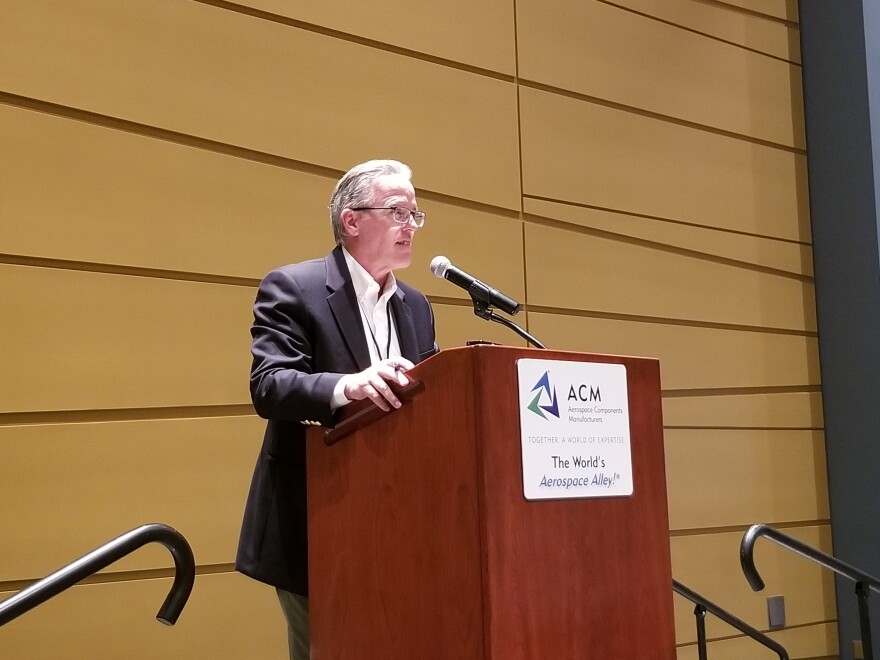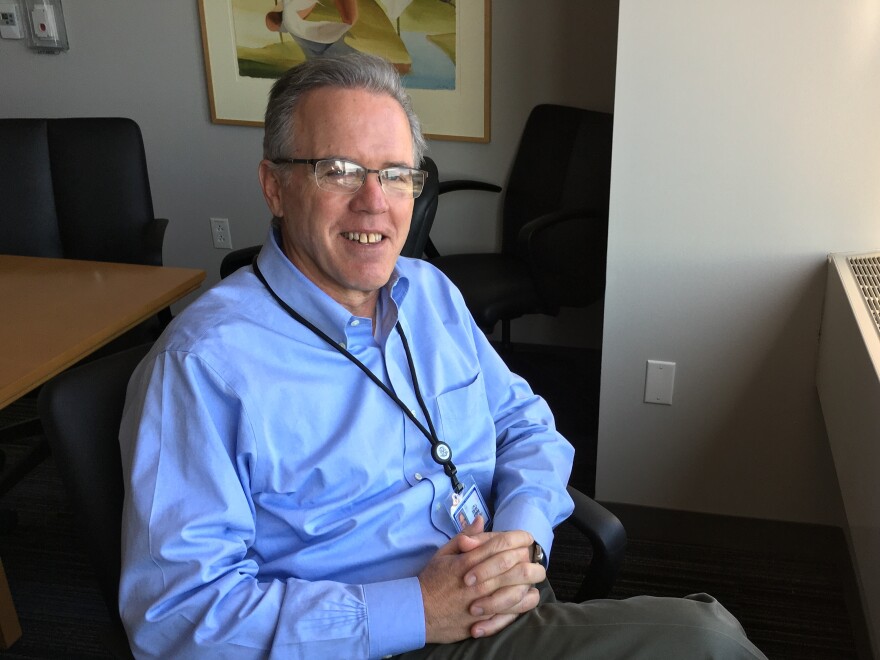Connecticut’s first chief manufacturing officer says one issue dominates his agenda as he takes up his new post: finding enough skilled workers to fill thousands of open positions in the industry.
For years, Colin Cooper headed up the Eastford-based Whitcraft Group, a sheet metal manufacturer and one of the larger aerospace supply chain companies in the state, doing business with Pratt & Whitney, GE, Rolls-Royce and other giants. Cooper retired from the corner office a year ago and has since remained involved on Whitcraft’s board.
But he told Connecticut Public Radio that having the chance to fill this newly created position at the Department of Economic and Community Development came at just the right time.
“It was important to have someone in state government who comes to work every day focused on manufacturing,” said Cooper, noting that already in the few weeks he’s traveled around the state in his new role, he’s heard that message loud and clear from many of the companies he’s visited.
So what’s on their minds? Cooper said several themes surface time and time again, like creating a predictable tax environment, cutting red tape and rolling back regulations, and making sure small, growing companies have access to the capital they need.
But even as important as those issues are, they take a back seat to one overriding concern.
“I’ve joked that it’s clear that the top three priorities are workforce development, workforce development and workforce development,” Cooper said.
At its height, Connecticut’s manufacturing industry employed almost 300,000 workers. After bottoming out at about half of that total 10 years ago, the workforce is now growing again -- most economists peg it at around 160,000.
And it could be larger. By some counts, the 4,000 or so manufacturing companies in the state are advertising as many as 10,000 open positions.
“The manufacturing community has done their part, they’ve created those jobs,” Cooper said. “Now we just need to get people with the requisite skills in there to fill those jobs.”

That need is made even more urgent by the reality that more than a third of the current workforce -- the higher skilled and more experienced third -- is over 55 years old, meaning those workers are on the cusp of retirement. And when they retire, they take with them decades of institutional knowledge.
Cooper describes the current workforce as having a “barbell” demographic.
“You have cadre of millennials who have come into the workforce, and then you have a large group of aging baby boomers,” he said. “And really the most skilled and knowledgeable employees are in that older demographic.”
Cooper sees two strategies to solving this problem. First -- recruiting school leavers and college graduates into the industry, selling them on the fact that manufacturing can be a viable, often lucrative career. Second -- matching the training they receive to the jobs they’ll need to fill.
That effort is taking place largely in the state’s technical high schools and community colleges, where several state-sponsored programs attempt to line up what happens in the classroom with what’s really going on in the industry.
Cooper describes a visit he made recently to Naugatuck Valley Community College.
“Talking to the fellow who runs the program out there, he kept referring to the companies in the area as his customers,” Cooper said. “Which is great -- that’s exactly the way that you want the educators to think.”
As the new chief manufacturing officer, he doesn’t have a budget to achieve his aims; it’s a matter of coordinating efforts across state government and twisting arms to establish the priorities the industry wants to see.
Cooper says that shift from private-sector CEO to public servant has been an adjustment for him personally.
“I didn’t literally, but figuratively -- I signed people’s paychecks, so it was a lot easier to get their attention and focus. Here, other organizations may have different priorities and agendas,” he said with a chuckle.
Despite that dynamic, he said he’s encouraged to see the willingness across state agencies to prioritize skilling up Connecticut’s workforce. His one note of caution in these early weeks: He’s concerned about making sure Gov. Ned Lamont’s debt diet doesn’t starve out the state’s training and support initiatives for manufacturers, most of which are financed by bonding.
“The governor’s committed to constraining the state’s expenditures, he’s trying to get us so that we live within our means,” he said, an effort which, as a former business executive, he applauds.
But there’s always the question of where the ax falls. “We really need to make sure that we get the resources to the manufacturing community that they need,” Cooper said.


